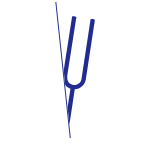Detailed introduction of the Estonian Academy of Music and Theatre:
Introduction and Overview
School Positioning: The Estonian Academy of Music and Theatre is the most famous national higher music education institution in Estonia. It is one of the authoritative music schools of the European Federation of Music Schools and is famous for cultivating professional talents in the fields of music and drama.
Location: Located in the center of Tallinn, the capital of Estonia, the specific address is Rävala puiestee 16, 10141 Tallinn, Estonia.
History and Establishment Time
The predecessor of the academy was the Tallinn Higher Music School established on September 28, 1919, which originated from the initiative of the mixed choir of the Estonian Social Music Department. In 1923, the school was renamed the Tallinn Academy of Music and became a music education institution directly under the state in 1935. In 1938, the National Drama School was established. In 1989, the school resumed its old name of "Tallinn Conservatory of Music". In 1993, it was renamed "Estonian Conservatory of Music". In 1995, the drama department was renamed the Drama Academy and incorporated into the conservatory education system. In 2005, it was officially named the Estonian Academy of Music and Drama.
School Strength
Teaching Staff: There are 275 faculty members in the school, including many experts and professors with profound attainments in the fields of music and drama. They not only have rich teaching experience, but also enjoy a certain reputation internationally and can provide students with high-quality professional guidance.
Teaching Facilities: The new teaching building completed in 1999 is located in the center of Tallinn, covering an area of 7,500 square meters. It has 60 piano rooms, 14 rehearsal rooms, a large concert hall, a small concert hall with a Baroque organ, as well as chorus halls, opera rooms, electronic music laboratories, recording studios, libraries, computer rooms and restaurants and other complete teaching facilities. In addition, the college also has 95 grand pianos and cutting-edge audio-visual equipment. The piano room has the most advanced acoustic effects in the world, providing excellent conditions for students' learning and practice.
International Exchange: Since 1991, the college's international projects have flourished, and its relationship with the international music community has become increasingly close. It has established cooperative relations with the Moscow and St. Petersburg Conservatories in Russia, and in the 2002-2003 academic year, it has established cooperation with 21 other European countries. The college has signed cooperation agreements with music colleges, such as the Salzburg Conservatory of Music in Austria, the Ijesus Conservatory of Music in Belgium, and the Royal Conservatory of Madrid in Spain. The cooperation projects include exchange performances, student exchange studies, and joint concerts.
Nature of the institution
National public university.
Educational philosophy
The college is committed to inheriting and promoting the orthodox European music culture. It sets up training courses based on the most orthodox European royal music, cultivates students' professional skills and artistic qualities in the fields of music and drama, and leads students into the most noble and elegant music and art hall. At the same time, it pays attention to the cultivation of students' innovative and practical abilities, encourages students to carry out artistic innovation on the basis of inheriting traditions, and provides students with rich and colorful performance and practice opportunities, so that they can better adapt to future career development needs.
Key laboratories and disciplines
Key disciplines: The college covers a number of key disciplines in the field of music and drama, among which piano, string music (violin, viola, cello), wind music, vocal music, conducting composition, musicology and other majors have a high reputation and influence internationally. The college also has a doctoral degree program, providing students in musicology and other majors with opportunities for in-depth research and academic development.
Key laboratories: The college has professional laboratories such as the Electronic Music Laboratory, which provide advanced technical support and platforms for students to learn and practice in electronic music creation, music production and other aspects.
Department
The college is mainly divided into the Department of Music and the Department of Drama. The Department of Music covers multiple professional directions such as composition, performance, conducting, and musicology, while the Department of Drama includes professional fields such as performance, directing, and drama creation. The two departments cooperate and develop together to provide students with a comprehensive and systematic music and drama education.
Ranking
As a top music college with first-class faculty in Northern Europe, although its specific ranking in the international comprehensive university rankings has not been found, it has a high reputation and status in the field of music, and its education quality and professional level have been widely recognized by the international music community.
Expenses
Tuition fees: The tuition fee for international students in English courses for undergraduate and master's degrees is 5,500 euros/year, and the tuition fee for the master's degree in art and cultural management is 2,500 euros/year. Year.
Living expenses: Compared with other EU countries, Estonia has a high quality of life but is not expensive. The average student spends about 300 euros per month on study, food, transportation, telephone and personal activities.
Campus
Campus facilities: The campus building has a unique artistic style, and the internal facilities are complete and modern. In addition to various professional classrooms, rehearsal halls, concert halls and other teaching facilities in the teaching building, the college's library has a rich collection of books, with more than 30,500 books and more than 14,000 recordings, providing sufficient resource support for students' study and research.
Campus life: The college often holds various concerts, drama performances, academic lectures and other activities to enrich students' extracurricular life, and also provides students with a platform to show their talents. In addition, the college also has student organizations and clubs, where students can make like-minded friends, expand their interpersonal network, and explore the charm of music and drama art together.
-
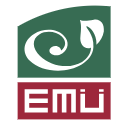
Estonian University of Life Sciences
-

Tallinn University of Technology
-
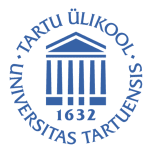
University of Tartu
-
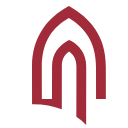
Tallinn University
-
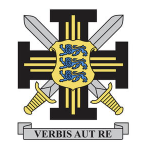
Estonian Academy of Security Sciences
-

Estonian School of Diplomacy
-

Estonian Business School
-

Estonian Academy of Arts
-
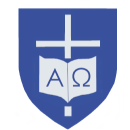
Institute of Theology of the EELC
-
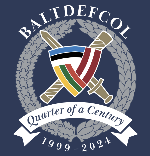
Baltic Defence College
-

Mesoamerican University
-

Istmo University
-

Mariano Galvez University of Guatemala
-

Regional University of Guatemala
-

Galileo University
-

Francisco Marroquín University
-

Rafael Landívar University
-

University of the Valley of Guatemala
-

University of San Carlos of Guatemala
-

Technological Institute of Tlaxcala Plateau
-

Golfo University
-

Technological University of South Sonora
-

Technological University of Huejotzingo
-

Tizimín Institute of Technology
-

Chilpancingo Institute of Technology

